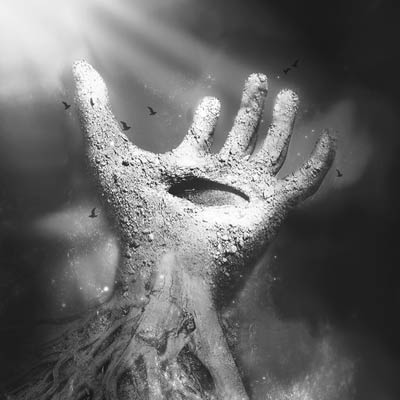All Nonfiction
- Bullying
- Books
- Academic
- Author Interviews
- Celebrity interviews
- College Articles
- College Essays
- Educator of the Year
- Heroes
- Interviews
- Memoir
- Personal Experience
- Sports
- Travel & Culture
All Opinions
- Bullying
- Current Events / Politics
- Discrimination
- Drugs / Alcohol / Smoking
- Entertainment / Celebrities
- Environment
- Love / Relationships
- Movies / Music / TV
- Pop Culture / Trends
- School / College
- Social Issues / Civics
- Spirituality / Religion
- Sports / Hobbies
All Hot Topics
- Bullying
- Community Service
- Environment
- Health
- Letters to the Editor
- Pride & Prejudice
- What Matters
- Back
Summer Guide
- Program Links
- Program Reviews
- Back
College Guide
- College Links
- College Reviews
- College Essays
- College Articles
- Back
Stuck in the Mud: The Timeless Monotony of
I have finished Act One of "Happy Days," a play by Samuel Beckett. I saw the play once performed in St. Louis, and I remember being very, very confused. I wanted to really look at the play and decipher it for myself, and this is a great opportunity to do so!
The play is surreal. Winnie and her husband(?), Willie, are trapped in the ground. She’s buried up past her waist, and he’s too lethargic to leave his hole. Winnie talks and talks and talks, simultaneously chattering aimlessly and going through her daily routines, involving her glasses, her hat, her parasol, and her handkerchief. The mystery is not in the how, but the why: We may not know how Winnie and Willie became trapped in the desert, or what their past life entailed; rather, the real question as I see it is, “why do they go on?” They have no source of happiness, do they? There’s nothing satisfying in their present, nor any possibility of change in their future, so what could possibly keep them going, day after day? Winnie does pray every morning, but it’s more routine than religion. She also has a gun, and speaks plainly about the possibility of suicide, but the idea doesn’t seem to appeal to her. It’s absolutely bizarre. Classic Beckett.
I don’t want to say I identify with Winnie. Mainly, I’m afraid to become Winnie. She convinces herself that she’s happy, or at the very least tries to, day after day. But Willie is arguably worse: Self-aware of his own misery, but refusing to take any action about it, allowing himself to be dragged on, day after day, to Winnie’s whims.
One element always present in a Beckett play is time. Time always drags on, the main contributor to the overarching sensation of sheer bleakness. And time is real here, endless in the desert, and it needs to be filled. Winnie tries to fill the time with her meandering half-sentences, but time wins. We feel the comedy in the timing of Beckett’s writing, but we also feel the hopelessness as time builds up, stacking itself against the characters. We may all read at our own pace, but Beckett makes us perceive the timing as he envisions it, and that timing is brutal and moving.
I don’t remember the details of the latter half of the play, except that in Act Two, Winnie is buried deeper, all the way up to her neck. But I hope for a change of some kind, even the faintest glimmer of hope. I know there can’t be much of an external change: It’s a Beckett play. But if something inside Winnie is altered, I’ll feel a tremendous rush of relief.
---
I’ve finished Happy Days. The main change between the two acts is, in fact, that Winnie and Willie are buried deeper. Both physically (Winnie is up to her neck now, and Willie even more hidden away in his hole), and mentally (Winnie more desperate, and yet just as willing to ignore her own desperation, and Willie more reclusive, speaking only once in the second act).
The mindless, constant repetition of thoughts tunnel into our minds, just as they bore into Winnie’s. She speaks again of the couple who stumbled upon her and asked why she was in the ground, and she frets again and again over Willie. Is he all right? What’s going on? I wish you would spend more time out here, instead of in your hole.
And yet, Winnie is never characterized as a mere nag, or something equally simplistic in its negativity. Winnie is always understandable in her actions, even if her ability to maintain an outward state of pure chipperness seems bizarre to us. We can somehow empathize with her, even as she blinds herself from her own sinking.
The genius of the play, to me, rests upon two principles: One, Winnie never falters in her cheeriness. If we saw Winnie’s desperation bubble up, if we saw she was aware of the terrible situation she lived in, she’d be delusional for not acknowledging it earlier, and nothing more. Two, her situation is never defined as a specific metaphor for something. Okay, perhaps her struggle has something to do with the struggle of women. That seems to be the case, as her “feminine nature” plays a dominant role in how she spends her many hours. But it’s never explicitly stated. “The hole is ___” is not a definite conclusion for the play. If it was, I don’t believe Happy Days would have quite the same impact.

Similar Articles
JOIN THE DISCUSSION
This article has 0 comments.

Beckett plays, man. Who knew comedy was so depressing?